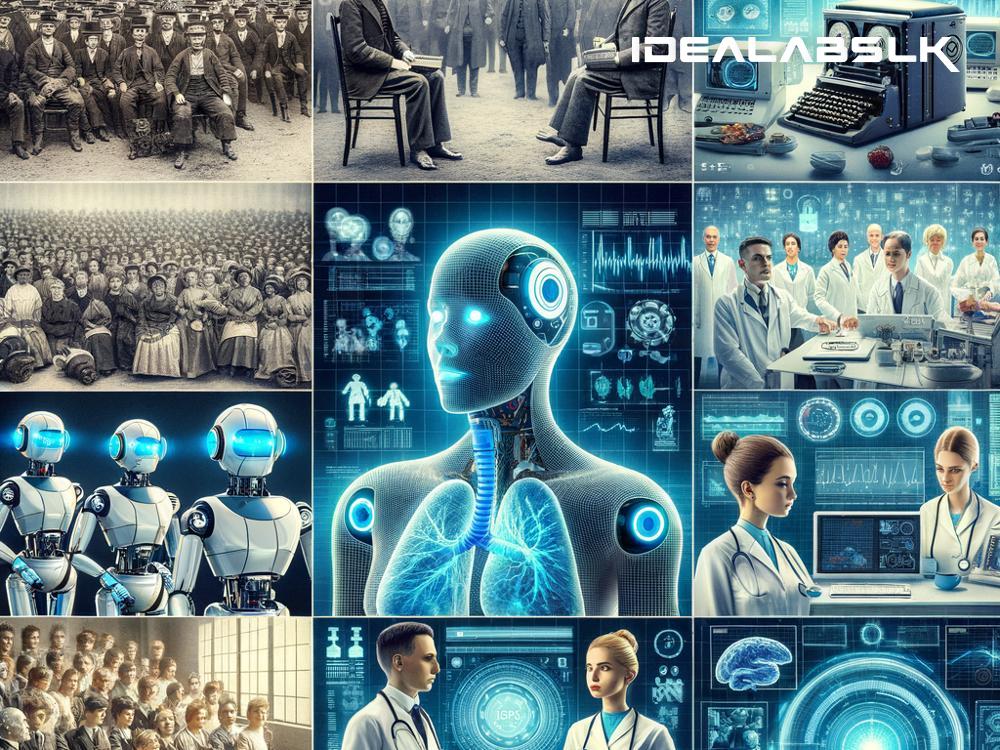The Journey of Artificial Intelligence in Health Tech: A Simple Guide
Artificial Intelligence (AI), a term that once belonged to the realm of science fiction, has now become an integral part of our day-to-day lives, especially in healthcare. This fascinating journey from imagination to reality has transformed the way we perceive medical care, diagnosis, and treatment. Let's dive into the history of Artificial Intelligence in Health Tech and understand its evolution, significance, and impact in simple English.
The Early Days
Believe it or not, the idea of using computers and technology in medicine has been around since the 1950s. In those days, computers were huge, room-sized machines that few could access or afford. However, some visionaries saw the potential for these machines to process information and assist doctors in making better decisions.
One of the earliest attempts at incorporating AI in healthcare was the development of systems like ELIZA in the 1960s and MYCIN in the 1970s. ELIZA was a simple computer program that could mimic human conversation, while MYCIN was designed to help with the diagnosis of bacterial infections and recommend antibiotics. Though primitive by today's standards, these systems paved the way for future advancements by proving that machines could process medical data and even make suggestions.
The Rise of AI in the 80s and 90s
During this era, the world saw significant advancements in computer technology, including the development of more sophisticated AI algorithms and the increase in computing power. These improvements allowed for new possibilities in health tech. Computer-Aided Diagnosis (CAD) systems began to emerge, assisting radiologists in identifying potential diseases in imaging scans like X-rays and MRIs with greater accuracy.
The 2000s: A New Dawn
The 2000s marked a turning point in the integration of AI into healthcare. With the advent of the internet and improvements in data storage and processing capabilities, AI applications in health tech began to expand rapidly. Machine Learning (ML), a subset of AI where machines learn from data and improve over time, started showing remarkable results in various medical fields.
Algorithms could now analyze large datasets from patient records, clinical studies, and genetic information to find patterns and predict outcomes. This capability laid the groundwork for personalized medicine, where treatments could be tailored to individual patients based on their unique genetic makeup and health history.
The 2010s: AI Goes Mainstream
The introduction of Deep Learning, another subset of AI focusing on neural networks (which mimic human brain functions), brought unprecedented advancements in health tech. Deep Learning allowed for even more accurate analysis of medical images, sometimes surpassing human experts in detecting conditions like cancer in early stages.
Moreover, AI started to play a critical role in drug discovery and development, significantly reducing the time and cost to bring new medications to market. Chatbots and virtual health assistants became more common, providing patients with information and support, and even monitoring their health status.
The Present and the Future
Today, AI in health tech is more advanced and widespread than ever. From predicting disease outbreaks and epidemics to robotic surgeries and beyond, AI's potential seems boundless. The current focus is on making AI systems more explainable and transparent, ensuring that doctors understand how AI comes to its conclusions. This fusion of human expertise and AI's computational power aims to create a healthcare system that is more efficient, accurate, and accessible to everyone.
Furthermore, wearable technology and smart devices, powered by AI, are becoming commonplace, enabling continuous monitoring of health conditions and providing early warnings of potential issues. These advancements promise not only to extend our lifespan but also to improve the quality of our lives.
Conclusion
The journey of Artificial Intelligence in healthcare is a testament to human ingenuity and our never-ending quest to push boundaries. From the early experiments with room-sized computers to today's pocket-sized devices capable of saving lives, AI has come a long way. As we look to the future, it's clear that AI will continue to revolutionize healthcare, making it more personalized, predictive, and preventative. The story of AI in health tech is far from over; in fact, it's just getting started, and its next chapters are bound to be even more exciting and life-changing.
Artificial Intelligence has not only bridoned the landscape of health tech but also reassured humanity that in the face of ever-evolving healthcare challenges, innovation and technology will always be there to offer solutions. The history of AI in health tech is a vivid reminder of our resilience and creativity, marking the steps we've taken towards a healthier world for all.

